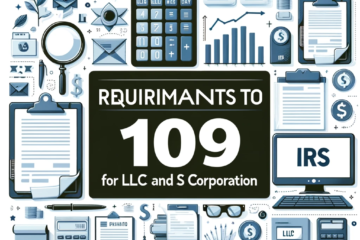Recently, a significant move has been initiated to champion the rights of disabled entrepreneurs in the United States. A petition has been filed, advocating for the reduction of LLC state filing fees for this community, aiming to level the playing field and make entrepreneurship more accessible.
The petition underscores the financial barriers that these fees create, acting as yet another hurdle for disabled individuals keen to enter the business realm. Those interested in supporting the cause or seeking more information can view and sign the petition here.
A petition has been launched advocating for the reduction of LLC state filing fees specifically for disabled entrepreneurs in the United States.
This initiative aims to address and alleviate the financial barriers that these fees present, potentially unlocking more entrepreneurial opportunities for the disabled community.
Supporters and those interested in the cause can further explore and endorse the petition via its official page.
What is LLC Annual State Filing Fees?
Limited Liability Companies (LLCs) have become an essential fixture in the American business landscape. These entities are created through state-specific regulations and, as such, are subject to state filing fees. Understanding these fees, especially in the context of LLC services and the broader landscape of business formation costs, is crucial for anyone venturing into entrepreneurship.
LLCs offer a blend of flexibility and protection, safeguarding business owners from personal liabilities associated with their venture. One of the recurring obligations for LLC owners is navigating the LLC Annual State Filing Fee.
This fee, sometimes termed as the “annual fee” or “renewal fee,” is a mandatory charge that LLCs must remit to the state where they are registered. The charge is levied to keep the LLC in compliance and good standing with the state’s business registration office, generally the Secretary of State.
Here are some salient points:
- Purpose: This fee primarily finances the administrative llc services provided by the state. This includes maintaining business databases, facilitating regulatory compliance, and processing various business-related paperwork.
- Frequency: LLCs are typically bound to pay this fee on an annual basis. The exact timing, however, can differ among states. Some mandate payment on a fixed date, while others link it to the LLC’s initial formation date.
- Variability: The magnitude of the annual fee can fluctuate widely across states. In some locales, the charges are nominal, around $20, but in others, they can surpass $300. This variability underscores the importance of staying abreast of one’s specific state charges.
- Consequences of Non-Payment: Overlooking or neglecting to pay the annual fee can spell trouble for an LLC. They might face penalties, accrue late fees, lose their standing in the state, or even risk administrative dissolution.
- Affordable Formation Services: It’s worth noting that while state filing fees can be substantial, several formation services cost $0 in formation cost such as ZenBusiness. These services aim to streamline the process of setting up an LLC, making it more accessible and affordable for potential business owners.
- Additional Reporting: Beyond the fee, some states expect LLCs to furnish an annual or biennial report. This document typically outlines updates about the business, covering aspects like its official address, management framework, and operational nature.
Importance of Supporting Disabled Entrepreneurs
Did you ever wonder about the barriers that disabled entrepreneurs might face in the business world? One of the key challenges they confront is the financial barrier, specifically the LLC state filing fees.
These fees can act as a gatekeeper, stopping many from ever embarking on their business journey.
Current Economic Landscape for Disabled Individuals
For many disabled individuals, the journey to financial independence is riddled with obstacles. With fewer job opportunities and higher expenses, how can they break through? The answer might lie in entrepreneurship.
The Role of Entrepreneurship in Empowering Disabled Individuals
Picture this: a world where disabled individuals aren’t restricted by traditional job roles. Instead, they carve their niche, driven by their passions and strengths.
Entrepreneurship can be that empowering platform. It’s not just about making money; it’s about redefining one’s identity and place in society.
The High Cost of LLC State Filing Fees
Starting a business is a dream for many, filled with aspirations of innovation and financial independence. Yet, for a significant number of budding entrepreneurs, this dream is met with an immediate financial roadblock: the LLC state filing fees.
Often overlooked by those entrenched in the business world, these fees can be staggeringly high in certain states, serving as a formidable barrier to entry.
How High Fees Hinder Potential Entrepreneurs
Imagine saving up to start your business, only to be hit by exorbitant state filing fees. It’s like reaching the finish line and then being told you have another mile to run.
These fees, although might seem trivial to some, can be the last straw for disabled entrepreneurs already struggling with other expenses.
Comparing Fees Across States
From New York to California, the state filing fees for an LLC vary. While some states offer reasonable fees, others can burn a hole in your pocket. But should one’s business dream be influenced by their state’s fee structure?
The Advocacy for Reduced Fees
In every challenge that emerges in society, there are champions who rise to address it. When it comes to the steep LLC state filing fees, a group of advocates has emerged, fervently pushing for a revision and reduction of these charges.
Recognizing the deterrent these fees pose, especially for disabled entrepreneurs, these individuals and organizations are not merely rallying for monetary relief. Their efforts symbolize a deeper call for economic justice, inclusivity, and the acknowledgment that entrepreneurial spirit should never be stifled by prohibitive costs.
This section delves into the hearts and minds behind this advocacy, their journey so far, and the potential ripple effects of their cause.
Who’s Behind the Petition?
Enter the heroes of our story – the advocates pushing for reduced fees. These individuals and organizations recognize the value disabled entrepreneurs bring to the table. The petition is more than just about fees; it’s a call for equality, inclusion, and empowerment.
Potential Benefits of the Fee Reduction
Reduced fees could be the wind beneath the wings of countless disabled entrepreneurs. More businesses mean more jobs, increased innovation, and a richer, more diverse marketplace. It’s a win-win for everyone involved.
Counterarguments and Concerns
But like any story, there are naysayers. Some argue that reducing fees would decrease state revenue or that it could be misused. While these concerns are valid, shouldn’t we prioritize empowering a marginalized community?
While the push for reduced LLC state filing fees has gained momentum, especially for disabled entrepreneurs, it’s essential to acknowledge and understand the counterarguments and concerns voiced by various stakeholders. A comprehensive approach ensures that the discussion is well-rounded and that all perspectives are taken into account. Here are some of the prominent counterarguments and concerns:
- Potential Revenue Loss: One of the primary concerns is the potential decline in revenue for states. These fees contribute to state coffers, and any reduction might impact state budgets.
- Misuse of Provisions: There’s a worry that reduced fees, specifically targeted for disabled entrepreneurs, might be misused by others seeking to exploit this provision for their benefit.
- Implementation Challenges: The process of verifying eligibility for reduced fees might pose bureaucratic challenges and additional administrative LLC costs.
- Equity Concerns: While the focus is on disabled entrepreneurs, there are concerns about other marginalized groups who also face financial barriers. Should they too receive similar concessions?
- Setting a Precedent: Offering fee reductions based on specific criteria might open the doors for numerous other groups seeking similar waivers, potentially complicating the fee structure.
The Global Perspective
In a globalized world, comparing practices across borders often offers valuable insights and can pave the way for beneficial policy shifts. When it comes to supporting disabled entrepreneurs, different countries have taken varied approaches.
Let’s take a journey around the world to understand how various nations address the challenges faced by this community.
How Other Countries Support Disabled Entrepreneurs
Globally, countries are recognizing the need to support disabled entrepreneurs. From grants in the UK to training programs in Australia, the world is slowly waking up to the potential of disabled entrepreneurs. So, shouldn’t the US lead the way with fee reductions?
Financial Incentives in Europe
European nations, especially countries like the UK, Germany, and France, offer a range of financial incentives for disabled entrepreneurs. From grants to subsidies, the emphasis is on removing monetary barriers that might stifle the entrepreneurial spirit.
Training and Development in Asia
Countries like Japan and South Korea have focused on providing tailored training and development programs for disabled individuals. By equipping them with the right skills, they aim to bolster their chances of business success.
Accessible Infrastructure in Scandinavia
Scandinavian countries, renowned for their progressive policies, have prioritized creating accessible infrastructures for disabled entrepreneurs. From accessible co-working spaces to transportation facilities, the focus is on ensuring physical barriers don’t hinder business operations.
Collaborative Ecosystems in Oceania
Australia and New Zealand are pioneering collaborative ecosystems where disabled entrepreneurs can network, collaborate, and share resources. These platforms foster a sense of community and provide avenues for mutual growth.
Conclusion
Empowering disabled entrepreneurs by reducing LLC state filing fees isn’t just a financial move; it’s a step towards a more inclusive, diverse, and equitable society. After all, why should one’s entrepreneurial spirit be curtailed by a fee?
Frequently Asked Questions (FAQs)
1: How much are the current LLC state filing fees?
They vary by state, with some being as low as $50 such as Montana LLC charges $35 as filing fees. And others exceeding $500.
2: Who can qualify for the reduced fees if the petition is successful?
The proposal primarily targets disabled entrepreneurs, but specifics would be detailed in the final policy.
3: Why focus on disabled entrepreneurs specifically?
Disabled individuals often face unique challenges and expenses, making them more financially vulnerable.
4: Are there other countries with reduced fees for disabled entrepreneurs?
Various countries offer different support mechanisms, from reduced fees to grants and subsidies.
5: How can I support this petition?
You can sign the petition, spread awareness, and engage with local and state representatives on the issue.

Tim Kelly, J.D., is a legal writer for LawInfo.com. He holds a law degree from Mitchell Hamline School of Law in St. Paul, Minnesota. Tim has a background in retail copywriting and entertainment journalism, with his work being featured in various publications, including the New York Times and EW.com. In 2017, he transitioned into the legal industry, specializing in intellectual property and small business law. Tim resides in the Twin Cities and takes great joy in being a husband, father, and passionate record collector.







